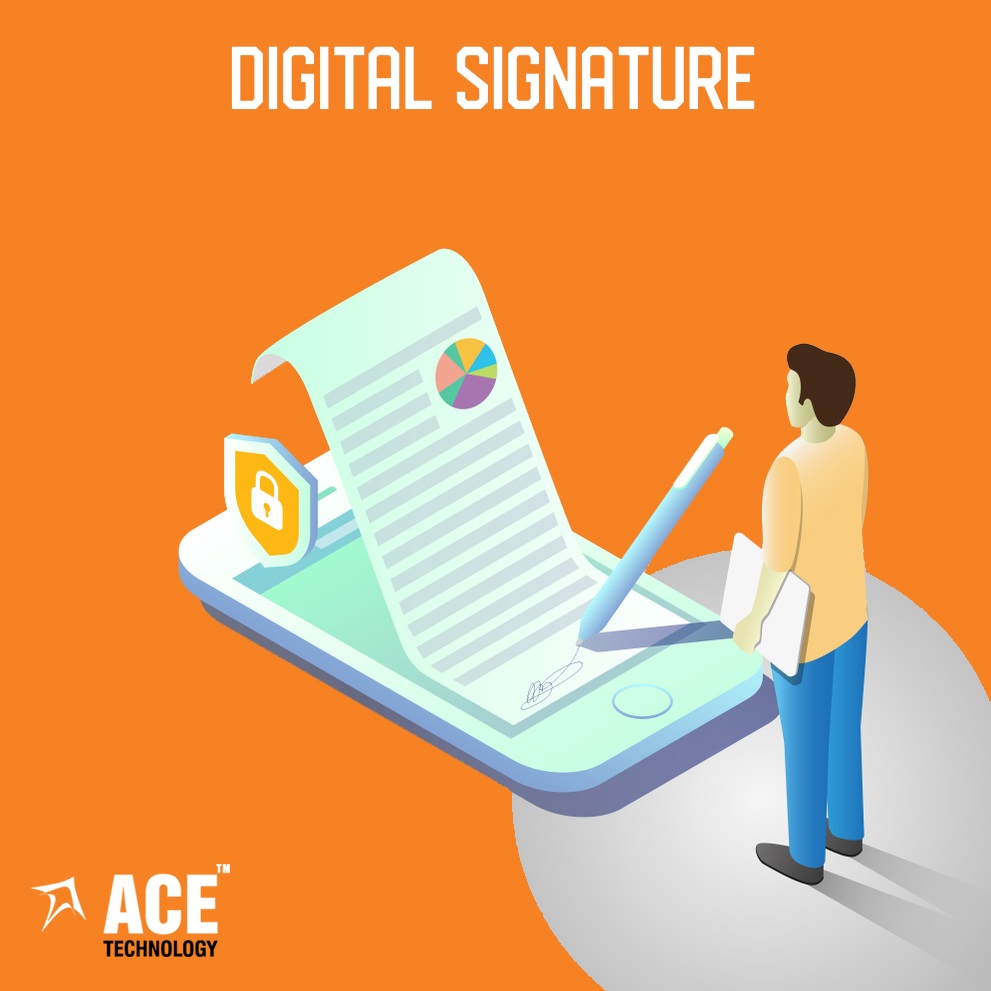A digital signature validates electronic documents similarly to a handwritten signature, which validates the printed documents. This signature cannot be forged. The recipient of the message can verify that the message was generated from the person whose signature is on the document and that the message has not been altered accidentally or on purpose from the time it was signed.
A digital signature certificate is a secure digital key that is issued by the certifying authorities (CA) for the purpose of validating and certifying the identity of the person who owns the certificate. Digital Signatures make use of the public key encryptions to produce the signatures.
A digital signature certificate (DSC) contains information about the person’s name, zip code, country, email address, date of issuance of certificate and name of the certifying authority.
Digital Signature Certificates (DSC) are the electronic format of physical certificates. Certificates serve as proof of identity of an individual for a certain purpose; for example, a driver’s license identifies someone who can legally drive in the country. Similarly, a digital certificate can be presented electronically to authenticate one’s identity, to access information & services on the internet or to sign documents digitally.
In simple words, digital signatures delivers: Authentication, Data Integrity, and added security.
There are mainly two types of Digital Signature Certificates (DSC) legally recognized in India:
Class 2 Certificate: Issued to the signatory authorities of the companies for the purpose of e-filing with the Registrar of Companies (ROC). It is compulsory for individuals who have to sign manual documents while filing of returns with the ROC. It is the most widely used form of digital signature certificate.
Class 2 certificate is used where the risk is moderate. The signature is installed in a hardware cryptographic device.
Class 3 Certificate: Used in online bidding in e-auctions & online tenders. The vendors who are participating in the online tenders must have a Class 3 digital signature certificate. It is the most secure form of digital signature certificate.
Class 3 certificate is used where the risk of data compromise is high. It is also installed in a hardware cryptographic device.
Why use Digital Signature Certificates?
Digital Signature Certificates are very helpful in authenticating the personal information details of the individual holder when doing business online.
Reduced cost and time: Rather than signing the hard copy documents physically and scanning them to send them via e-mail, you can digitally sign the PDF files and send them much more efficiently. The amount of time spent in processing contracts will be cut immensely, allowing more business deals to be finalized in a short span of time. If you deal with multiple documents at once, you won’t need to go out of your way to sign them all. Instead, you sign documents quickly with just a few clicks.
The Digital Signature certificate user does not have to be physically present to conduct or authorize a business.
Data integrity: Documents that are signed digitally cannot be altered after signing, which makes the data safe and secure. The government authorities often ask for these certificates to cross-check and verify the business transaction.
Authenticity of documents: Digitally signed documents give confidence to the receiver to be assured of the signer’s identity. They can take action on the basis of such documents without getting worried about any trickery. Digital signatures reduce the risk of duplication & alteration of the document itself. Digital signature certificates make sure that the signatures are verified, authentic and legitimate. Users are given PINs, password & codes that can prove their identity & approve their signatures. Time stamping states the date and time of the signature thus, providing a track of the document, reducing any risk of fraud.
Better Customer Experience: Digital signatures provide the comfort of signing important documents where ever a customer to sign is located. Businesses do not have to wait for the customer to come to the bank or office. Documents can be signed off at the door. This is ideal, especially in remote areas & smaller towns delivering better and personalized services. The customer is free to be anywhere, and engage with a company, making services and businesses far more simple, fast and user – friendly.
Global acceptance and legal compliance: More & more countries are starting to accept digital signatures on legally binding documents because the security protocols offered by vendors are in compliance with international standards in the field.
Environmental advantages: As businesses move towards the digital world, the usage of paper is drastically reduced. Thus becoming environment friendly.

